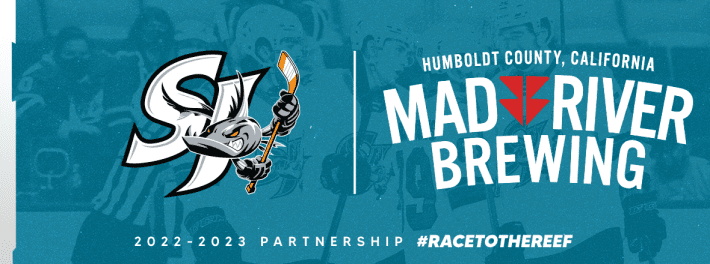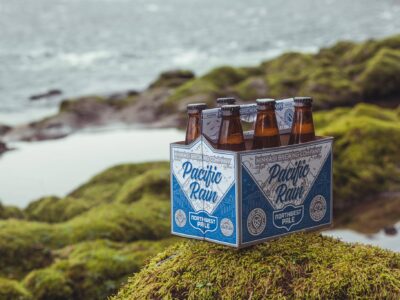Continuing our coverage of Native American-owned alcohol producers, our attention turns to Mad River Brewing. Based out of Humboldt County, CA, it is owned and operated by the Yurok Agricultural Corporation, the largest Tribe in the state. It is women-led, currently being run by CEO Linda Cooley. The brewery has worked hard to promote inclusiveness in the beer industry, making many special ales and inking major business deals with sports teams in the Bay Area.
October 2019 marks when the Yurok Tribe purchased Mad River. The company has a few sustainability initiatives, such as organic waste, like spent grain and yeast, being donated to local farmers as animal feed or composted.
The green production methods earned the attention of the California Integrated Waste Management Board, winning seven WRAP awards for its efforts in waste reduction.
The brewery also aligns with eco-friendly products committed to environmental protection and water advocacy.
A unique philanthropic movement Mad River is involved in is the Inclusion Beer Project. The goal of the initiative is to promote diversity in breweries. A special hazy IPA was made and sold during National Native American Heritage Month. Proceeds go to the To’Kee Skuy’ Soo-Ney-Wo-Chek (I will see you again in a good way) Project, an organization dedicated to protecting and investigating missing Native American women.

On May 9 of this year, the new Maize Goddess Indigenous Ale was unveiled. It uses ingredients sourced from Native-owned suppliers, such as corn grown by the Iowa Tribe of Kansas and Nebraska. The new beer highlights the farm-to-table movement in Native brewing and celebrates the power and strength of Native women.
“This is the first step towards our goal to develop wholly Tribal, farm-to-table products,” Linda Cooley, Mad River CEO, said in a statement. “Starting with one ingredient is a benchmark, and we are excited to build on this and invite other Tribal partners to work on collaborative projects that strengthen economics and support sovereignty.”
In a profile by The Guardian, Mad River reportedly donates 5% of beer sale proceeds to causes the beers are made for. Meanwhile, 20% of its net revenue goes to the Yurok Tribe. The company also hires Tribal members in the storeroom and brewing floor. The improvement of the Tribe’s social services and economic advancement are paramount.
All beers made by Mad River are certified by the Yurok Tribe for following “high standards for environmental and social responsibility.”
It helps bring more awareness to the Tribe while representing the values it holds dear. The hope is this will spur business opportunities within the Yurok community.
The brewery has gotten great exposure thanks to some nifty deals signed with Bay Area sports teams. At the San Francisco Giants ballpark, the beers are served at concessions, becoming the first Tribal-owned beer sold in a major league stadium. This agreement has helped combat stereotypes of Native American people while supporting the Yurok. Cooley was asked to throw the first pitch on the second day of MLB Opening Weekend in 2022.
Across the bay in San Jose, the Sharks’ minor-league affiliate, the San Jose Barracuda, partnered with the company to sell its beers at the Tech CU Arena. Mad River is now the entitlement sponsor of the East Bar located within the arena. The Barracuda became the first American Hockey League franchise to serve a Native-owned beer.

“Beyond just its fabulous product, this partnership highlights the team’s continued mission to provide a platform for smaller businesses in our diverse community,” said Eric Grundfast, former director of business operations for the Barracuda.
Another partnership Mad River entered was with Grey Snow Management Solutions. Owned by the Iowa Tribe of Kansas and Nebraska, the deal expands Mad River’s distribution and production nationwide. A warehouse and brewery were built on the Iowa reservation, and they could be opened to other Native-owned breweries to continue bringing awareness to these products.
“Since we’ve purchased this brewery, my dream has been to have a category for Native American products,” Cooley told Tribal Business News. “There’s never anything specifically highlighting who we are and what we have. You go to a shelf, and you don’t know if there’s a real Tribe making a product.”





